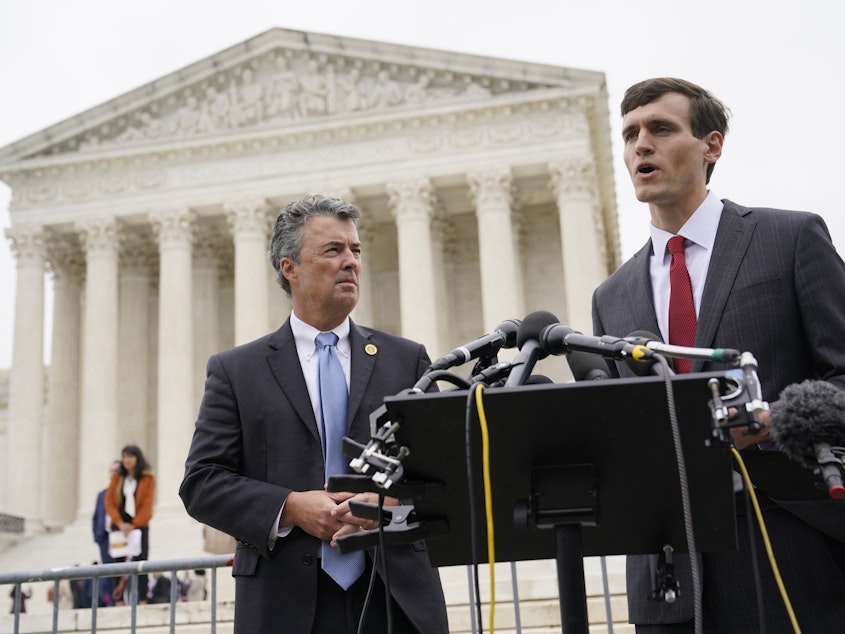Alabama's congressional map is struck down again for diluting Black voters' power

Updated September 5, 2023 at 10:14 AM ET
A panel of three federal judges has struck down Alabama's latest map of congressional election districts for not following a court order to comply with the landmark Voting Rights Act.
In an order released Tuesday, the judges said they are "deeply troubled that the State enacted a map that the State readily admits does not provide the remedy we said federal law requires."
"We are not aware of any other case in which a state legislature — faced with a federal court order declaring that its electoral plan unlawfully dilutes minority votes and requiring a plan that provides an additional opportunity district — responded with a plan that the state concedes does not provide that district," said U.S. Circuit Judge Stanley Marcus, U.S. District Judge Anna Manasco and U.S. District Judge Terry Moorer. "The law requires the creation of an additional district that affords Black Alabamians, like everyone else, a fair and reasonable opportunity to elect candidates of their choice. The 2023 Plan plainly fails to do so."
For the 2024 elections, the judges have assigned court-appointed experts to draw three potential maps that each include two districts where Black voters have a realistic opportunity of electing their preferred candidate. Those redistricting proposals are due to the court by Sept. 25.
Sponsored
All sides in this case will be able to challenge the proposals produced by the court's "special master" and cartographer, the judges have said. A hearing on any objections is tentatively set for Oct. 3.
And the state of Alabama has previously signaled in court filings it would appeal this kind of ruling to the U.S. Supreme Court, where a majority of justices upheld the panel's order in June.
The panel's latest ruling is part of a long-running legal fight over a redistricting plan that could help change the balance of power in the U.S. House of Representatives after next year's elections.
Before reviewing the congressional map passed by Alabama's Republican-controlled legislature in July, the three judges threw out an earlier redistricting plan approved by state lawmakers after finding that it likely violated Section 2 of the Voting Rights Act by diluting the power of Alabama's Black voters.
Out of the state's seven congressional voting districts, that plan included only one opportunity district for Black voters in a state where Black people make up more than a quarter of the state's residents.
Sponsored
The judges ordered instead a new map with two opportunity districts for Black voters, and Black Alabamians, they noted, would need to make up the majority of the voting-age population or "something quite close to it" in each of those districts, given how racially polarized voting is in the state.
The state is facing a looming logistical deadline for next year's races. Alabama's top election official — Secretary of State Wes Allen, a Republican — has told the court that finalizing a redistricting plan by around Oct. 1 "would provide enough time to reassign voters, print and distribute ballots, and otherwise conduct the forthcoming 2024 primary elections based on the new map."
The legal battle over Alabama's congressional districts is expected to continue with a court trial about the map that will be used for the 2026 elections.
Edited by Benjamin Swasey [Copyright 2023 NPR]



